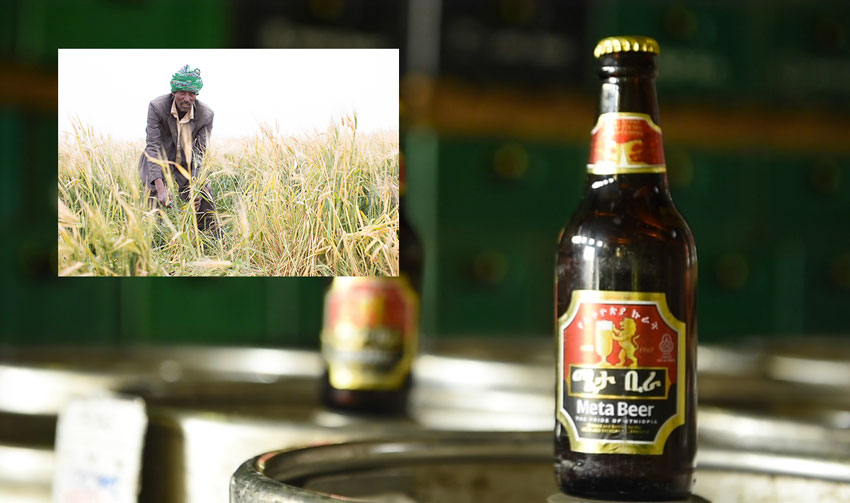HISTORIC LINK TO BENEFIT 6,500 FARMING FAMILIES
Deal will see Diageo source raw materials from rural poor farmers
Self Help Africa has linked up with global drinks company Diageo in an historic new partnership that is set to boost the income of smallholder farming communities in Ethiopia.
The new agreement will see Self Help Africa connecting small-scale barley farmers with the brewing multi-national, as part of an economic development project being backed by the Irish Government.
Under the plan, barley seed to be produced, multiplied and distributed by Self Help Africa will drive an increase in barley production across the region. The market-led production is in response to Diageo’s increased demand for malting barley for beer production.
Diageo, through its local subsidiary Meta, is supporting the partnership by providing participating farmers with training, fertilizer, crop insurance and improved barley seed.
Diageo also hopes to purchase significant quantities of barley seeds from these farmers, working then with its existing network of 6500 smallholder farmers to use the seeds to grow barley that supports the Meta beer brewing process.
[youtube https://www.youtube.com/watch?v=LuLJsJy2zDo&w=640&h=480] “Partnerships like this are a win-win for all involved,” explained Self Help Africa country director in Ethiopia, Wubshet Berhanu.“Farmers throughout Ethiopia are struggling with poor quality seed, which results in poor harvests. Having Diageo join our efforts to lift incomes for poor smallholder farmers is what good public-private partnership is all about. The result will see improved incomes for these farmers, achieved in an environmentally and economically sustainable way”, he added.
Diageo’s head of sustainability, David Croft said that their company hoped to source all of its raw ingredients for it’s Ethiopian operations within the country, within the next two years.
“By sourcing more ingredients locally we are able to invest and support the growth of local economies, contribute to the development of those communities, and support long term sustainable business and growth.”

